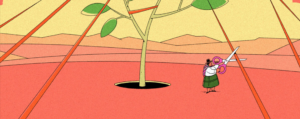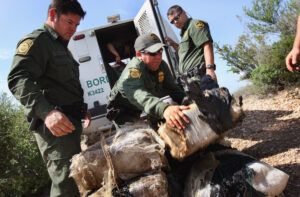Open Letter to the Presidents of the Americas
For a Drug Policy that Promotes Peace and Respect for Human Rights
In this Sixth Summit of the Americas, the agenda of the presidents of the continent includes a debate on drug policy. As civil society organizations working on drug policy from different viewpoints and countries, we call upon the leaders of the region to review the consequences of two decades of a war that has failed to achieve a reduction in drug trafficking. Instead, as has been widely documented, it has led to the multiplication, concentration, specialization and diversification of organized crime.
While failing to reduce the scale of drug markets, this expensive war victimizes thousands of innocent people, causing deaths and disappearances, mass and inhuman detentions of those who represent the weakest links of the drug trafficking chain, families of small farmers that are treated like delinquents, and the criminalization of drug users.
It is time for governments’ drug policy agendas to change directions and focus on alternative, innovative, and concerted responses that allow for a comprehensive approach to the problems associated with drugs. These are bold proposals that require political will. We propose to:
1.-Separate drug use from concerns related to crime and security. Drug users should not be penalized for consuming drugs, nor should they be suspected of being part of the drug trafficking chain. Only a clear separation between drug users and the illegal market will allow for security agencies to target those who really merit enforcement attention. This measure would help alleviate prison overcrowding and overwhelmed judicial systems.
2.-Ensure proportionality in sentencing for drug-related crimes. Prisons are overcrowded with low-income people without criminal records, street-level drug dealers, small-scale traffickers operating on borders, and peasant farmers that cultivate crops used for illicit purposes. Sentences for drug offenses should be proportional to the nature of the crime, and alternatives to incarceration should be considered for those in situations of increased social vulnerability.
3.- Regulate the cannabis market and decriminalize possession and cultivation for personal use. Persecuting cannabis users and the cannabis market has proven ineffective, costly, and counterproductive. The extensive use of the plant and its enormous availability—in addition to how easy it is to produce at almost any latitude or in any environment—make it necessary to change regulations so that states can guarantee effective controls on its production, availability, and consumption. This will strengthen authorities’ ability to focus on activities that are much more damaging to the social fabric, such as violence and drug trafficking. The lessons learned from the experience of a regulated cannabis market would allow for the prudent and pragmatic design of regulations for the production and access to other riskier psychoactive substance in the future that could end the criminal monopolies that control these markets, along with all of their grave effects on violence, corruption, and the health of users.
4.-Implement a full and diverse range of public health responses. Different situations of problematic drug consumption require different responses, especially in contexts where this consumption is combined with extreme poverty. Special attention should be placed on harm and risk reduction.
5.-Incorporate an integral approach to alternative development regarding crops used for illicit purposes. Small-scale farmers live in conditions of poverty, social exclusion, and government neglect. This scenario greatly influences their decisions to become involved in illegal drug markets. An integral approach should be based on these local and regional realities, introduce measures for integral rural development, modify structures that concentrate land holdings, provide access to credits and markets for alternative products, and promote democratic governance.
6.-Recognize the traditional uses of ancestral plants such as the coca leaf. Different countries in Latin America have populations that use the coca leaf in their daily lives as an ancestral practice, such as chewing coca. The recognition of these uses, in addition to the promotion of markets for coca leaf-based products, should be respected, protected, and promoted by all of the involved countries. Potential therapeutic uses should be researched.
7.-Reduce deployment of repressive forces and emphasize the persecution of organized crime. An appropriate model for the persecution of organized crime does not necessarily lead to an increase in violence because its emphasis should be on developing sound intelligence and the use of appropriate tools to pursue criminal conduct related to financing, money laundering, corruption of the security forces, and the collusion of organized crime and sectors of national and local governments. This does not require more military actions against citizens or an increase in violence.
Reaching consensus to undertake these reforms requires a hemispheric debate that takes into account lessons from the past and the so-called “unintended consequences” of the war on drugs. We propose that a Group of Experts from the region lead this debate in order to form the guidelines for an alternative drug policy based on peace and justice.
We have spent twenty years wasting resources on military responses that have only worsened the cycle of violence, corruption, and criminality in our countries. The time has come to seek solutions that promote peace, development, health and respect for human rights. Latin America has already learned many important lessons from this approach, from which our peoples still have much to gain.
Acción Andina, Colombia;
Acción Andina, Bolivia;
Centro de Investigación “Drogas y Derechos Humanos” (CIDDH), Peru;
Colectivo por una Política Integral hacia las Drogas A.C (CUPIHD), Mexico;
DeJusticia, Colombia;
Intercambios A.C., Argentina;
Transnational Institute (TNI), The Netherlands;
Washington Office on Latin America (WOLA), United States.
Download the letter here




